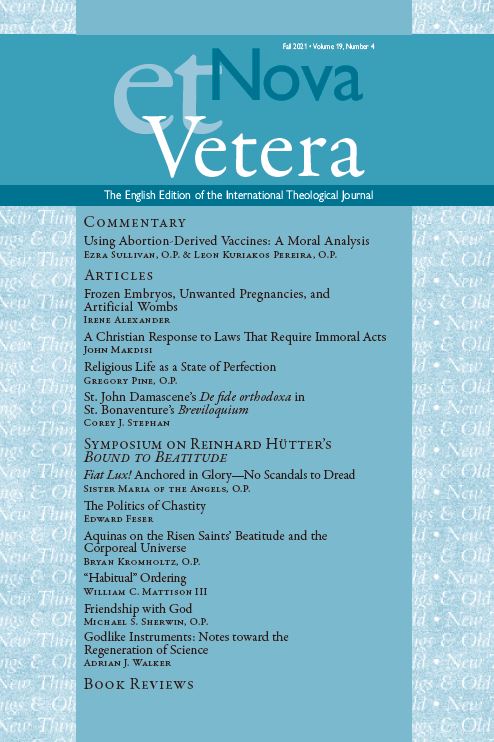Republished with permission: St. Paul Center for Biblical Theology
In this article, I seek to draw upon the resources of Tomas Aquinas and early Confucian philosophy in order to answer the following question: what are the responsibilities of lay Catholics to our priests and bishops as regards their personal moral recitation? This justifiably provokes two questions in reaction: why is this question worth pursuing, and why pursue it via a comparative reading of Aquinas and Confucian philosophy?
As to the first of these, the question I pose here is a specification of the larger responsibilities that fall to Christians according to the Scriptures. Galatians 5:1–2 puts the matter this way: “Brothers, even if a person is caught in some transgression, you who are spiritual should correct that one in a gentle spirit, looking to yourself, so that you may also not be tempted. Bear one another’s burdens and so you will fulfill the law of Christ.” In the theological tradition, “bearing one another’s burdens” has been neatly and aptly represented in the principle of fraternal correction. The question I am focused on here, then, is how is fraternal correction properly offered from laity to clerics.
Ultimately, articulating the shape or form of virtuous lay correction of clergy is actually a rather knotty problem. This is because the manner of the relationship between laity and clergy is not simply understood in terms of the bonds of Christian fraternity. Certainly, all Christians are brothers and sisters in Christ, for through His grace we have been adopted into the inheritance of the Kingdom of God as children of God (see Eph 5:1–5; 1 John 3:1–3). Yet the Church also recognizes that priests and bishops possess not simply a fraternal but also a paternal relationship to laity. As St. Paul again puts it to the church in Corinth, “I became your father in Christ Jesus through the gospel. Therefore, I urge you, be imitators of me” (1 Cor 4:15–16).
I propose here that, although fraternal correction is a still useful concept for understanding how laity can morally correct clergy, it has an obvious weakness in that it corresponds to a particular relational analogy, that of fraternity, within which the difference in authority is not as great as the parent–child bond. Thus, fraternal correction is exceptionally useful for understanding how relationships with more or less equal rank of authority can function in terms of moral remonstration, such as how a lay Christian might fraternally correct another lay Christian, or a cleric fraternally correct a cleric. However, when it comes to clergy–laity relations, the shape of fraternal correction is far less clear, for there is a just and genuine disparity between them in the order of ecclesial, magisterial authority underlying the relationship, even if there is equality in other important respects.


